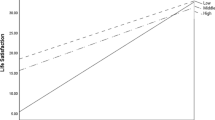Summary
Recent studies by the Midtown investigators found that, except for people experiencing no stress factors, lower class individuals were consistently in poorer mental health than those of higher status — regardless of the number of stress factors experienced. The present paper is concerned with testing the hypothesis that the Midtown findings may be due to a differential distribution of positive experiences in the various classes, experiences which might act to diminish or minimize the influence of stress. Data collected from a sample of 600 residents of a small New England State allowed for the testing of this hypothesis. Analysis of the data suggests that with regard to the relationship between class and psychological disturbance, social class position may be best regarded as a condition affectingboth positive experiences and stress, two variables that are more directly and immediately related to disturbance. While it has long been recognized that there are probably more stresses in lower class life, the possibility that there may also be social class differences in positive experiences which might tend to mitigate against these stresses has been largely ignored by previous investigators.
Résumé
De récentes études faites par les chercheurs de «Midtown» ont démontré que, excepté pour les personnes n'étant pas soumises à un stress, les individus des couches sociales inférieures étaient de façon permanente en moins bonne santé mentale que ceux bénéficiant d'un status plus élevé, sans tenir compte du nombre d'expériences sources de stress. Le présent rapport est consacré à l'étude de l'hypothèse de l'auteur, selon laquelle le résultat de la recherche «Midtown» serait dû à une distribution différentielle des expériences positives d'après les classes, expériences tendant à diminuer ou à minimiser l'influence du stress. Les données recueillies dans un échantillonnage de 600 habitants d'un petit Etat de la Nouvelle Angleterre ont permis de contrôler cette hypothèse. Il ressort de l'analyse de ces données que si l'on considère les relations existant entre classes sociales et troubles psychiques, la classe sociale peut influencer aussi bien les expériences positives que le stress, ces deux variables étant étroitement liées aux troubles. Bien qu'on sache depuis longtemps qu'il y a probablement plus de situations stressantes dans les classes inférieures, l'éventualité d'une différence de niveau de classes en ce qui concerne les expériences positives tendant à tempérer les difficultés a été tout à fait ignorée jusqu'a présent.
Zusammenfassung
Jüngste Untersuchungen aus dem Kreis der Midtown-F'orscher ergaben, daß, abgesehen von Leuten, die keinen Stress-Faktoren ausgesetzt sind, sich Angehörige der unteren Sozialklasse durchgängig bei schlechterer seelischer Gesundheit befanden als jene mit höherem Status — unabhängig von der Anzahl belastender Erfahrungen. Die vorliegende Abhandlung befaßt sich mit der Untersuchung der Hypothese, daß die Midtown-Ergebnisse einer unterschiedlichen Verteilung positiver Erfahrungen in den verschiedenen Klassen zuzuschreiben sind, Erfahrungen, die dazu führen können, den Einfluß von Stress zu verhindern oder auf ein Minimum zu reduzieren. Die von einem Sample von 600 Einwohnern eines kleinen Staates von New England gewonnenen Daten gestatteten die Untersuchung dieser Hypothese. Die Analyse der Daten legte nahe, daß im Hinblick auf die Beziehung zwischen Sozialklasse und psychischer Störung, die soziale Stellung am besten als eine Bedingung angesehen werden kann, die sowohl positive Erfahrungen wie Stress beeinflußt, zwei Variablen, die direkter und unmittelbarer mit Störungsreaktionen verknüpft sind. Während schon lange erkannt worden ist, daß es wahrscheinlich mehr Belastungen im Leben der niederen Sozialklasse gibt, ist die Möglichkeit weitgehend durch frühere Untersucher ignoriert worden, daß es auch Klassenunterschiede bei positiven Erfahrungen geben kann, die dazu beitragen, diese Belastungen zu mildern.
Similar content being viewed by others
References
Bradburn, N. M.: In pursuit of happiness. Chicago: National Opinion Research Center 1963.
—, andD. Caplovitz: Reports on happiness. Chicago: Aldine 1965.
Caplovitz, D., andN. M. Bradburn: Social class and psychological adjustment. Chicago: National Opinion Research Center 1964.
Cohen, B. B.: Statistical contributions from the Eastern Health District of Baltimore, III. Human Biol.11, 112–119 (1939).
Cole, N. J.: Mental illness. Arch. Neurol. Psychiat.77, 393 to 398 (1957).
Dohrenwend, B. P.: Social status and psychological disorder: An issue of substance and an issue of mental. Amer. Sociol. Rev.31, 14–34 (1966).
—, andB. S. Dohrewend: The problem of field studies in psychological disorder. J. abnorm. Psychol.70, 52–69 (1965).
Faris, R. E. L., andH. W. Dunham: Mental disorders in urban areas. Chicago: University of Chicago 1939.
Hollingshead, A. B., andF. C. Redlich: Social class and mental illness. New York: Wiley 1953.
Langner, T. S.: A twenty-two item screening score for psychiatric symptoms. J. Hlth hum. Behav.3, 269–276 (1962).
—, andS. T. Michael: Life stress and mental health. New York: Free Press 1963.
Leighton, D. C.: The character of danger. New York: Basic Books 1964.
Manis, J. G.: Estimating the prevalence of mental illness. Amer. Sociol. Rev.29, 84–89 (1964).
Srole, L. et al.: Mental health in the metropolis. New York: McGraw-Hill 1961.
Author information
Authors and Affiliations
Rights and permissions
About this article
Cite this article
Phillips, D.L. Social class and psychological disturbance: The influence of positive and negative experiences. Soc Psychiatry 3, 41–46 (1968). https://doi.org/10.1007/BF00578276
Issue Date:
DOI: https://doi.org/10.1007/BF00578276




